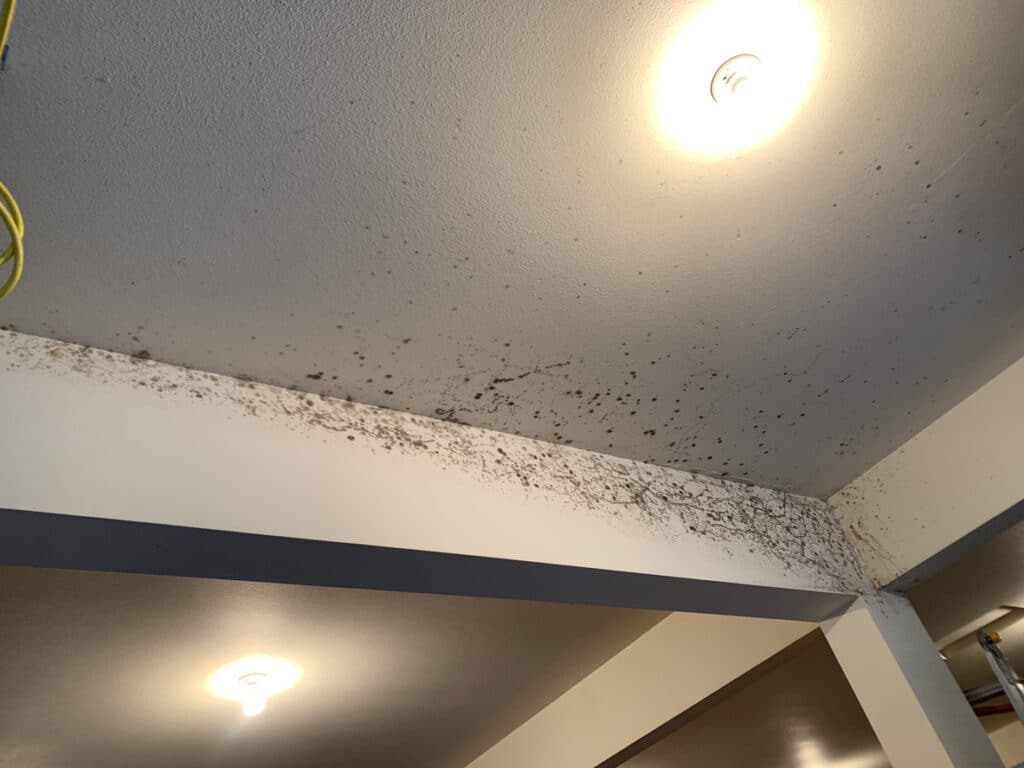Mold can be a persistent and potentially hazardous problem in homes. It thrives in damp, humid conditions, and once it takes hold, it can be difficult and costly to eradicate. As a homeowner, you might wonder whether your homeowner’s insurance policy covers mold remediation. The answer, as with many insurance-related questions, is: it depends.
Understanding Mold Growth
Mold can develop due to various reasons, such as:
- Water Damage: Leaks from pipes, roofs, or windows can create the perfect environment for mold.
- Humidity: High indoor humidity levels can foster mold growth, particularly in bathrooms, basements, and kitchens.
- Flooding: Floods can cause extensive water damage, leading to mold if the affected areas are not thoroughly dried.
Coverage Basics
Homeowners insurance policies typically cover “sudden and accidental” incidents. If mold results from a covered peril, such as a burst pipe or a windstorm that damages your roof and lets in water, your policy may cover the cost of mold remediation.
Common Scenarios and Coverage
- Sudden Water Damage:
- Covered: If a pipe bursts suddenly, causing water damage and subsequent mold, your insurance may cover the cleanup and repair costs.
- Not Covered: Gradual leaks that you could have addressed earlier are usually not covered. Insurers expect homeowners to maintain their property and address issues before they become significant problems.
- Flooding:
- Covered: Standard homeowners insurance does not cover flood damage. However, if you have a separate flood insurance policy, it might cover mold remediation due to flooding.
- Humidity and Poor Ventilation:
- Not Covered: Mold resulting from high humidity or poor ventilation is generally considered a maintenance issue and is not covered.
Policy Limits and Exclusions
Even if your policy covers mold remediation, there may be limits to how much the insurance company will pay. Some policies have specific mold remediation caps, which could be significantly lower than the overall policy limit. It’s essential to review your policy details and understand any limitations or exclusions.
Preventative Measures and Maintenance
Insurance companies expect homeowners to take preventative measures to avoid mold growth. Regular maintenance, such as fixing leaks promptly, using dehumidifiers in damp areas, and ensuring proper ventilation, can prevent mold from becoming a problem.
Steps to Take if You Discover Mold
- Document the Damage: Take photos and videos of the mold and any related water damage.
- Contact Your Insurance Company: Report the damage promptly and provide documentation. Your insurer will guide you through the claims process.
- Hire Professionals: Mold remediation is a specialized field. Hire licensed professionals to assess and remediate the mold to ensure it is thoroughly removed and to prevent recurrence.
Final Thoughts
Whether your homeowners insurance covers mold remediation depends on the cause of the mold and the specifics of your policy. It’s crucial to understand your coverage and take preventative measures to protect your home. Regular maintenance and prompt attention to water damage can help you avoid the headache and expense of mold remediation. For personalized advice, consult your insurance agent to clarify your policy details and coverage limits.
